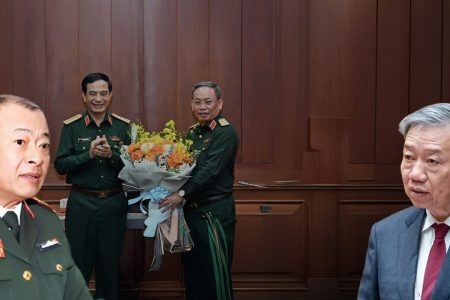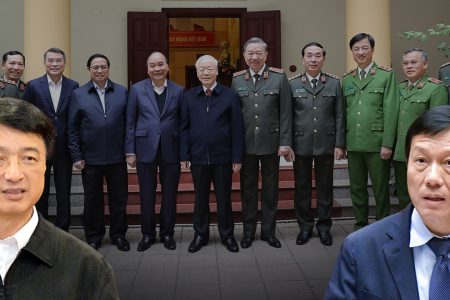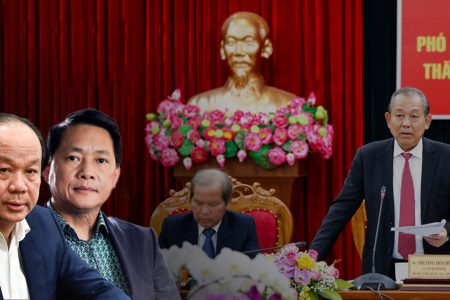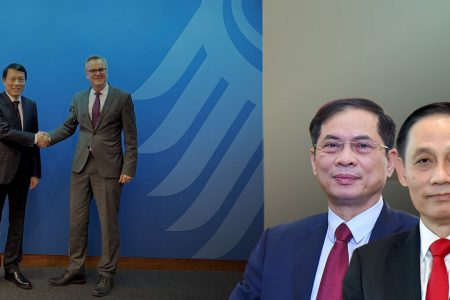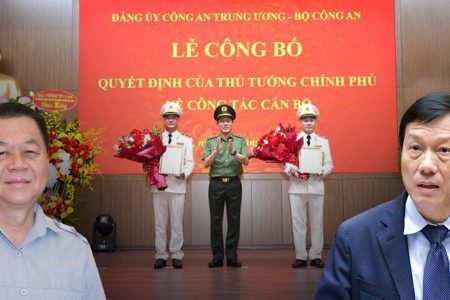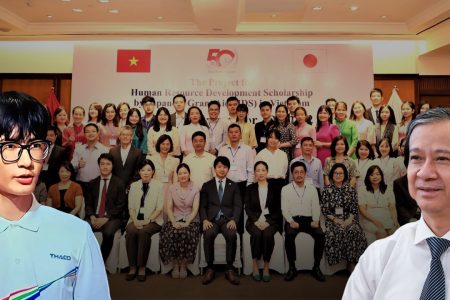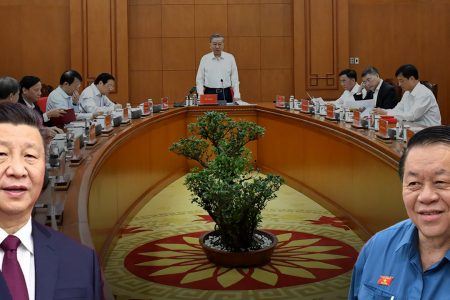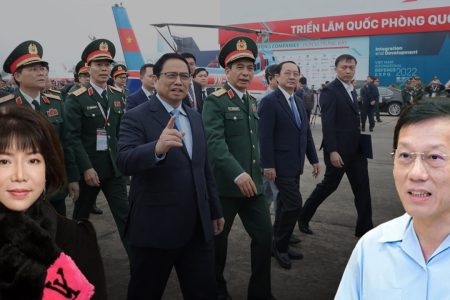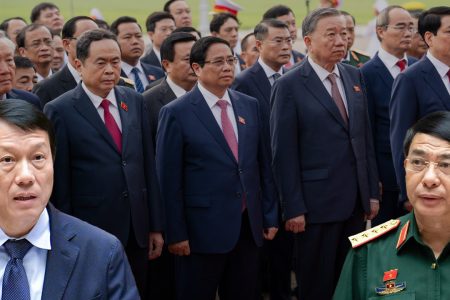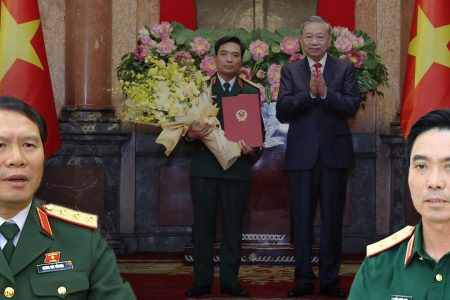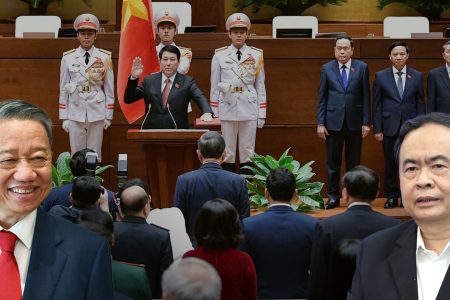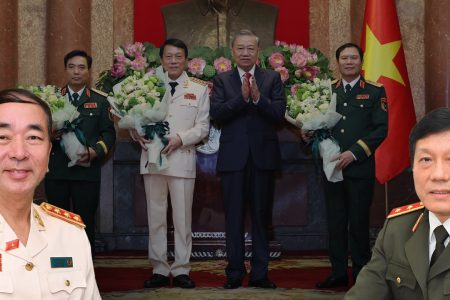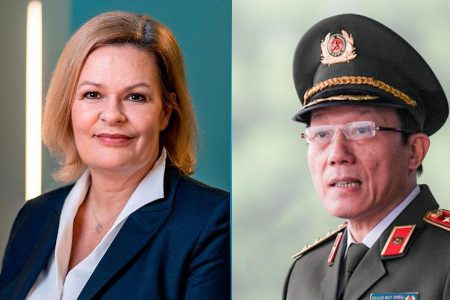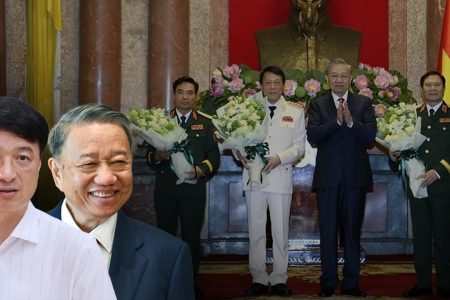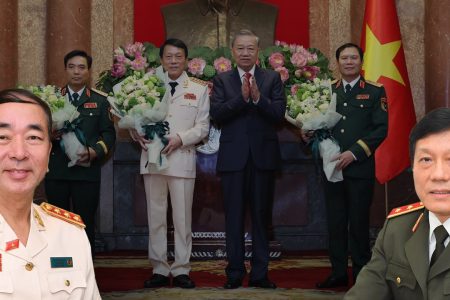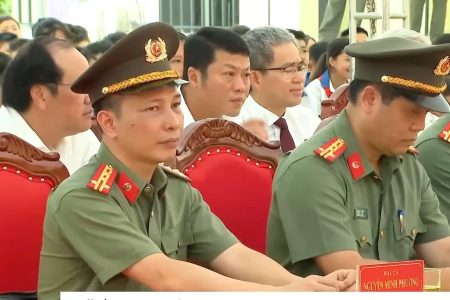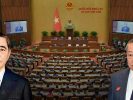The number of senior members from the Southern region in the Politburo as well as members of the Four Pillars of the Communist Party of Vietnam has been decreasing to an alarming level. The removal of Nguyen Xuan Phuc and Vo Van Thuong showed that.
According to observers, the standard of General Secretary Nguyen Phu Trong’s personnel is “theoretical Northerners” further confirms his distrust of the Southern Communist faction.
Regarding the Vietnamese court sentencing tycoon Truong My Lan to the death penalty, BBC Vietnamese quoted journalist David Brown’s opinion as saying:
“The Van Thinh Phat trial is an effort to reaffirm the Communist Party’s power over the South’s free way of doing business. What Nguyen Phu Trong and his Party allies are trying to do is to regain control of Saigon, or at least prevent it from slipping out of hand. Until 2016, the Communist Party almost let this Chinese mafia group run wild.”
According to analysts, the above statement by David Brown – a commentator who understands very well the current political situation in Vietnam, shows that General Secretary Trong and the Party leadership do not support this dynamic and free way of doing business in the South, especially Chinese Vietnamese businessmen.
This is contrary to the thinking of the majority of Southern Communist leaders. A typical example is the relationship of former Prime Minister Nguyen Tan Dung with an overseas Chinese of Khmer origin, Tram Be.
According to analysts, the existence of free and open business in the South is real, and has existed for hundreds of years, with significant contributions from overseas Chinese merchants. This is typical of economies in Southeast Asia, such as Singapore, Thailand, Malaysia, etc.
Scholar Truong Nhan Tuan from Paris asked the question, does the Chinese people’s dynamic free business style violate Vietnamese laws, or go beyond the Party’s control? Has there ever been a time when Saigon “slipped” out of the Party’s control, and Trong wanted to regain control?
Public opinion compares the execution of overseas Chinese tycoon Tang Minh Phung 20 years ago and sentencing tycoon Truong My Lan to death today. What does it have to do with the policy of preventing and eliminating overseas Chinese merchants in the South?
Meanwhile, Saigon’s economy has been contributing a large proportion to the national budget, around 80%, and the contribution of the Chinese-Vietnamese business community is very significant.
General Secretary Trong is considered to have a very good relationship with Beijing, even being pro-China. He was accused by observers of being attached to Beijing. Before the Van Thinh Phat trial, international analysts said that Lan’s relationship with the Beijing government had made Hanoi’s leadership extremely awkward. At the same time, that is also the reason why this case took more than 20 years to be prosecuted and brought to trial.
At the end of September 2022, before arresting Ms. Lan, General Secretary Trong unexpectedly visited and worked with the Standing Committee of the Ho Chi Minh City Party Committee, accompanied by special personnel. And less than 2 weeks later, Lan was arrested.
According to knowledgeable people, the arrest of Nguyen Cong Khe is also due to political forces wanting to control the power of the Southern Communist faction that is trying to rise. Accordingly, the forces in power want to control the “rebellious” intentions of former Southern Communist politicians, such as Truong Tan Sang, Nguyen Tan Dung, Nguyen Minh Triet or other emerging leading figures in Saigon as well as in the southern provinces.
What has just been said shows that the North-South division within the senior leadership of the Communist Party, not only in thinking, but also in action, is real.
An analysis titled “How Southern, and possibly Chinese, roots crushed Dung’s hopes” published in Japan’s Nikkei Asian Review, commented that the Vietnam War had ended more than 40 years ago, but the recent struggle for leadership in the Communist Party shows that the North-South division is still a major factor in Vietnamese politics.
Still according to Nikkei Asian Review, when commenting on Hanoi-Beijing relations, it said that, “behind the scenes [of Vietnamese politics] lurks the shadow of China, and clearly, there is influence.”
Radio Free Asia affirmed that China always sought ways to intervene to divide the two regions of Vietnam, not only at the Geneva Conference in 1954. At the final stage of the Vietnam War, in April 1975, a “military” intervention plan, with the deployment of two Airborne divisions of the Chinese Liberation Army, to block the North Vietnamese Army from entering Saigon, is something few people know about./.
Tra My – Thoibao.de



